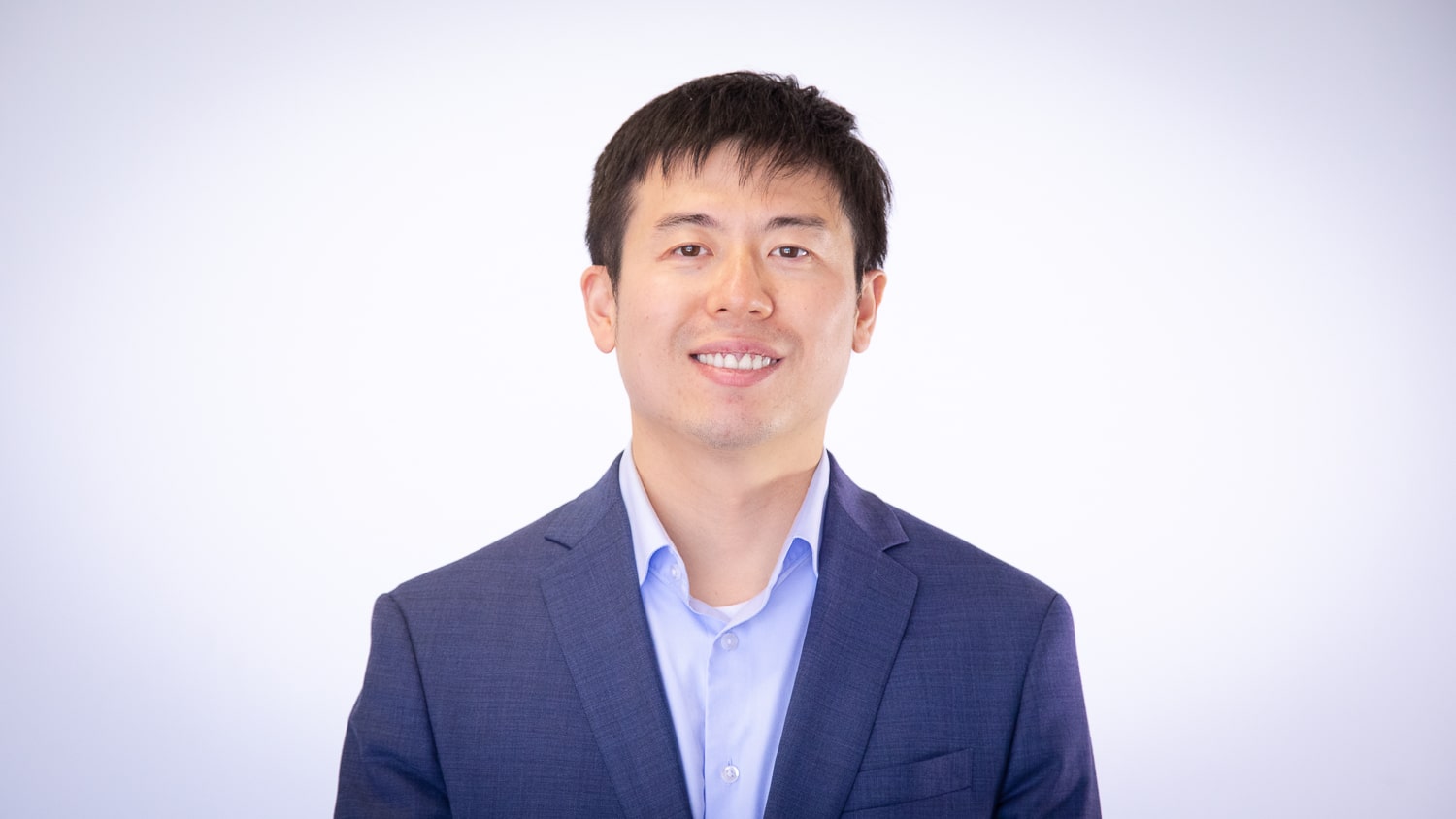Matthew Iezzi ’18, ’19: A World-Class Textiles Education Took This Graduate to Thailand, Hong Kong and Los Angeles

To say that Matthew Iezzi ’18, ’19 had a fulfilling college experience while he was a student at the Wilson College of Textiles would be an understatement.
During his time on campus, he conducted research on biodegradable fibers; was a member of the Sigma Tau Sigma Textile Honor Society and the Greater Good Textile Group; president of the Global Village’s hall council; a recipient of the prestigious Kimbrell Centennial Scholarship; and graduated with a near-perfect GPA — 3.99 to be exact — twice.

In addition to exploring the textile industry in North Carolina through multiple internships, his Centennial Scholarship provided enrichment funding that propelled him to accept an internship in Thailand and study abroad in Hong Kong. While in Thailand, he worked in a vertical mill producing sportswear products and gained a critical understanding of the complexities of mass manufacturing. In Hong Kong, he dove even deeper into his interest in supply chain management as a student at Hong Kong Polytechnic University.
Iezzi graduated in 2018 with a bachelor’s degree in textile technology and walked across the stage the following year with a master’s degree in textile engineering. This process would have typically taken at least six years, but he completed it in five thanks to the college’s Accelerated Bachelor’s/Master’s program.
Today, he lives in Los Angeles and works at Ambercycle — a materials company aiming to build an infinite textile ecosystem. As a textile engineer within the organization, Iezzi processes and develops new yarns and fabrics made from end-of-life textiles.
Outside of work, Iezzi is an avid hiker and cyclist who spends much of his free time on the trails. In addition to supporting his local community, he gives back to the Wilson College of Textiles to pay forward the support he received. “Having been a part of different student organizations on campus, I know how far even a small donation can go,” Iezzi says.
To learn more about Iezzi’s career path and his unique advice for current textile students, read his Q&A below.
Degree B.S. Textile Technology, 2018 and M.S. Textile Engineering, 2019
Job Title Textile Engineer at Ambercycle
Current City Los Angeles, California
Hometown Gastonia, North Carolina
Why did you choose NC State and the Wilson College of Textiles?
I grew up in Gastonia, a town with strong ties to textile mills and manufacturing, so I felt like it was a part of my DNA. I was always intrigued by the materials in the clothes I wore. My dad worked in plants when I was younger, so I grew up around manufacturing. I felt an immediate connection when I saw the college’s Dyeing and Finishing Lab (commonly called the Pilot Plant) — that really drew me in. I was intrigued by the fact that the floors below the college had facilities for producing garments from the fiber up, from spinning, knitting, weaving, dyeing and finishing!
What activities were you involved in as an NC State student and how did they impact your experience?
The experience that really shaped me was being part of NC State’s Global Village. Each semester, we roomed with an exchange student from a different country. This turned the halls into a mix of cultures that exposed me to different ways of thinking and different realities. This inspired me to travel even more which is, fortunately, a large part of the global textile trade and has really helped me connect on a deeper cultural level beyond just business.
What is your fondest memory of being at NC State and the Wilson College of Textiles?
The sense of community within the Wilson College of Textiles, which I feel extends even after we graduate. That was largely built while eating Layton’s BBQ on the patio at the college. NC State is a big school with a small-school personality, and it has a unique mix of cultures and people. I enjoyed every bit of it.
Who influenced you most during your time at the Wilson College of Textiles? And why or how?
There are too many to name! Drs. Russell Gorga, Jess Jur, Melissa Pasquinelli, Emiel DenHartog, Jeff Joines, George Hodge and Tushar Ghosh were all extremely wise and pushed me to explore what was possible within the textiles field. My peers influenced me, as well. Textiles are an oddly specific — and awesome — thing to study, and I found that everyone had a reason and passion for being there. This made it feel so much more than just a “school”. Kent Hester, the former director of student and career services, had endless advice and shared the true benefits of what can be gained and created from a “close-knit” [that pun never gets old] college community.
How did your education at the Wilson College of Textiles prepare you for what you are doing today?
The college prepared me in so many ways. A few examples include:
- The college’s Spinning Lab, Knitting Lab, Weaving Lab, and Dyeing and Finishing Lab offered me hands-on experience. I learned a lot from Tim Pleasants about spun yarn processing, and he let me liaise directly with our extension customers and companies about their yarn developments, which was an invaluable experience.
- Tri Vu in the Tri-Component Melt Extrusion Laboratory went out of his way to show me the intricacies of how filament spinning and texturizing machines operate. He was invaluable in helping our Senior Design team fabricate successful prototypes from a biobased and biodegradable polymer from our sponsor Kaneka, a Japanese chemical manufacturing company. It took hours for the spinning machine to heat up to 280C, so I got to know Tri pretty well.
- My internship (for class credit) at the Tong Siang Company in Thailand gave me a global understanding of the textile industry, technical tricks of the trade for knitting and finishing, and direct connections to top sportswear brands.
- Hours in the lab for knitting class looking under a pick glass at knit structures still helps me relate fabric structure to performance.
My coworkers find it funny that I still reference class textbooks and “Ctrl-F” my notes in my job and still use that little pick glass from college. I feel extremely fortunate that our college exists and provided a world-class education for myself and so many others in our industry.
Have you been motivated to give back to the Wilson College of Textiles financially? If so, what led you to make that decision?
Definitely. Having been a part of different student organizations on campus, I know how far even a small donation can go.
Describe your career path.
In college, I was fortunate enough to work a few summer internships in yarn manufacturing at Gaston College, Meridian Specialty Yarns and, in between class periods, I worked downstairs in the college’s Rieter Short Staple Yarn Lab with Tim Pleasants. I gained commercial experience in global sourcing at Hanesbrands in Winston-Salem and at a vertical mill in Thailand producing sportswear products. My experience in melt spinning through my Senior Design project with Tri Vu directly helped me land my current role.
Today, I work at Ambercycle on the process and product development for new yarns and fabrics made from end-of-life textiles. I also get to work with many factories and companies along the global supply chain, finding solutions for the large amounts of textile waste that are produced each year by producers and consumers.
Please describe your current volunteer and leadership experience.
I serve on the Wilson College of Textiles Dean’s Young Alumni Leadership Council (DYALC) and am a member of the recruitment committee. In this role, I help recruit young alumni to the DYALC who are interested in giving back to our college. I also mentor current Wilson College students and am excited to still be plugged in to all of the exciting things happening at the college.
What advice do you have for current Wilson College of Textiles students?
Textiles are tactile; get yourself downstairs to the pilot labs and feel some fiber, yarn and fabric! Get to know your classmates, because you will likely be working with them for decades to come! There are a lot of opportunities if you wish to pursue a career in textiles. Reach out to the college for mentorship opportunities (or me directly!) so we can share them with you.
- Categories:


